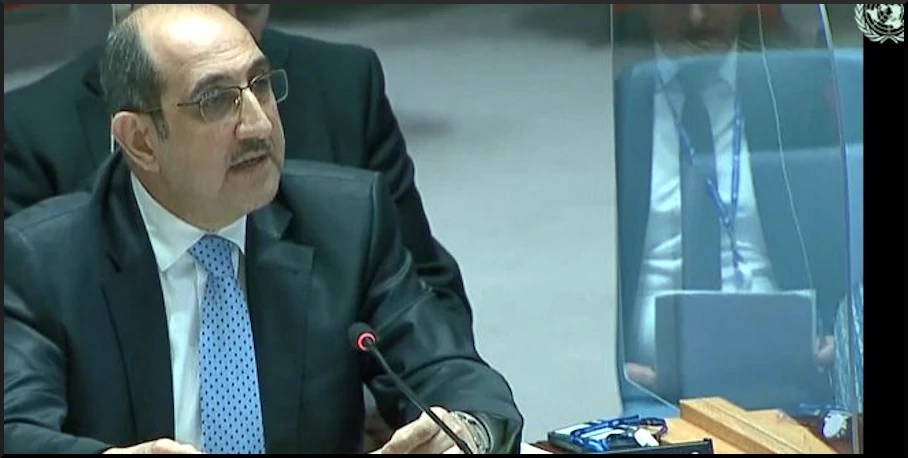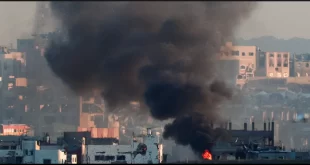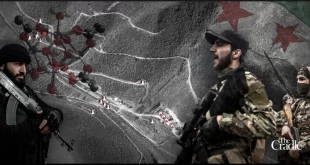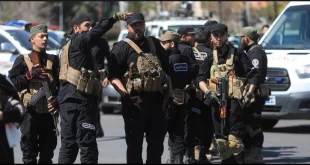by Ruaa al-Jazaeri, published on SANA, June 30, 2022
New York, SANA– Syria’s permanent representative to the United Nations, Bassam Sabbagh, stressed that the goal of the Israeli attacks on Syrian territory, the crimes of terrorist organizations, and the illegal presence of US and Turkish forces on them is to perpetuate chaos and terrorism and block the path to a political solution.
“Syria regrets that the Security Council was unable to condemn the Israeli aggression on Damascus International Airport, and deplores the fact that some countries obstructed the Council’s condemnation of this aggression under pretexts that clearly reflect their blind bias in favor of Israel,”
Sabbagh said during a session of the International Security Council on the political situation in Syria.
He added that the failure of the Security Council to fulfill its responsibilities makes the UN member states feel that they cannot rely on international legitimacy, but rather on their own capabilities to restore their rights.
Sabbagh affirmed Syria’s commitment to the political solution based on the Syrian-Syrian national dialogue and the political process under the leadership and ownership of Syria without any foreign interference and the need to fully adhere to its references and rules of work and reject any foreign interference in its work or impose predetermined results and artificial timetables for it.
The permanent representative said that the countries that prevent Syrian refugees from returning to their homeland should stop placing obstacles that prevent them from returning freely and with dignity, which first requires the lifting of the imposed unilateral coercive measures that kill the Syrian people and cannot be justified in any way.
Sabbagh shed light on the extremely important and unprecedented steps taken by the Syrian government in recent months, which clearly demonstrated the Syrian state’s firm keenness to support the path of national reconciliations and local settlements.
Sabbagh said that the amnesty decree issued by President Bashar al-Assad on the 30th of last April represented an exceptional step by its legal, social and political nature, as large numbers of detainees and the prosecuted individuals inside and outside the country have benefited from it.
He added that the Syrian state institutions continue their efforts to strengthen the legal and legislative structure, develop laws and harmonize them with current requirements.
Sabbagh considered that holding the 4th Meeting to Follow up on the International Conference on the Return of Syrian Refugees and Displaced in Damascus clearly reflects the strong will of the Syrian government to continue to overcome obstacles that prevent the safe, dignified and voluntary return of the displaced to their homes and areas of origin.
Sabbagh touched on what was confirmed by the final statement of the 18th International Conference on Syria in the Astana format, which was held in the city of Nur-Sultan, regarding the firm adherence to the sovereignty, independence, unity and territorial integrity of Syria, and the need to continue to work to combat terrorism and confront the organizations of Daesh (ISIS) and Jabhat al-Nusra and the individuals and entities associated with them, including those that pose a threat to civilians inside and outside the Idleb de-escalation zone.
The Syrian diplomat that the statement affirmed rejection of all unilateral coercive measures imposed on the Syrian people and the theft of their resources, and rejection of all attempts to create new conditions on the ground, including the so-called “self-governance initiatives” and separatist projects in the northeast of the country.
Sabbagh noted that the statement also welcomed the process of mutual release of a number of abductees and detainees that took place on June 13 within the framework of the working group concerned with the release of detainees and abductees, and condemned the continuation of the Israeli military attacks on Syria and demanded their cessation and rejection of all unilateral coercive measures imposed on the people.
Sabbagh praised the efforts made by the Russian and Iranian guarantors, in contrast to the Turkish regime, which, through its practices, reneged on its previous commitments and pledges under the Astana agreements and the Sochi understandings, reiterating Syria’s rejection and condemnation of its statements about the establishment of the so-called “safe zone” in northern Syria.
Sabbagh said, “My country is looking forward with interest to the 9th round of the Committee of Discussing the Constitution, after the special envoy found a solution to the logistical problems raised by some of the participating parties.”
He affirmed that the party that Turkey named and claims to represent the Syrians is still insisting on obstructing any progress in the work of the Committee of Discussing the Constitution and promoting ideas that contradict the will of the Syrian people and do not serve their aspirations and visions.
Sabbagh added that Syria is a sovereign country that is proud of its national and Arab identity and that takes decisions with its national will and based on its constitutional duties and its concern for all its citizens. It seeks to establish and consolidate relations of friendship and constructive cooperation with various countries of the world.
 Syria Support Movement solidarity with the Syrian people
Syria Support Movement solidarity with the Syrian people





